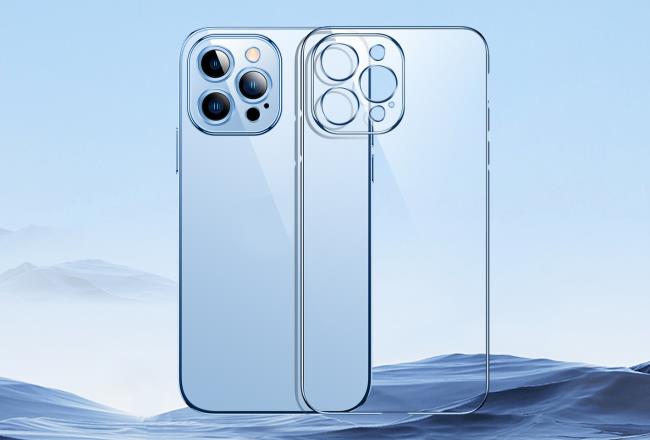
Case study
More sustainable TPU phone case: Desmopan® CQ EC MB series
Our Desmopan® CQ EC MB series enables brands to create applications that integrate up to more than 80%* renewable raw materials, attributed using a mass balance approach. This also helps cut CO₂ emissions by up to 50%**, for more sustainability.
TORRAS is a minimalist-oriented lifestyle brand producing ultra-sleek, high quality phone cases, screen protectors and other mobile products. The company is guided by the simple philosophy that subtraction and simplification can beautify the world.
Facing stiff competition in its overseas markets outside of China, TORRAS was looking for a more sustainable material for a new phone case to help raise the brand’s profile and underline its environmental commitments.
For the protective phone case, TORRAS required a material with the flexibility and impact resistance of thermoplastic polyurethane (TPU), but coupled with a greater share of renewable attributed raw materials, without any sacrifice in processability. The solution also needed to produce substantially lower emissions.
Pushing boundaries in sustainability and material technology, we collaborated closely with our customer to develop a more sustainable thermoplastic polyurethane for this phone cover application.
Exploiting multiple state-of-the-art technologies at once enables us to create our partly bio-based TPU to feature more sustainable attributed content of up to more than 80%*, and at the same time offer a significantly reduced emissions footprint.
The underlying challenge here was to deliver an ultra-sleek, high quality phone case for TORRAS that would retain the key performance characteristics of TPU, particularly its resistance to impact when dropped, and yet offer a much lower environmental footprint overall, with a higher share of renewable attributed raw materials and lower fossil fuel use and carbon emissions.
Crucially, this enhanced sustainability had to be achieved without modifying the existing production line or the manufacturing process; in effect demanding a drop-in solution. In addition, a constant and seamless collaboration on prototyping and product testing was also essential, which played to our strength in crafting connections to build sustainability with value chain partners.
Thanks to our close collaboration with Covestro, we were able to reduce the carbon footprint of our TORRAS-branded protective phone cases, offering a product with up to 80%* renewable attributed content. Sustainability is a major trend in our industry, and leading-edge Desmopan® CQ EC MB helps us stand out!
Our innovative solution uses multiple state-of-the-art technologies: The partly bio-based Desmopan® CQ EC range, which we have enhanced to offer up to more than 80%* sustainable attributed inputs drawn from biomass and renewable attributed raw materials, using a mass balance approach.
Bio-based and recycled feedstocks are growing in popularity as a way to reduce a product’s environmental footprint. Whenever a biomass or other renewable attributed raw material is used in an integrated chemical process that also includes fossil fuel inputs, this new ingredient must be clearly tracked through all processing steps, from the original material suppliers to the processors.
Across the value chain, every player must use a consistent methodology that meets minimum standardization requirements. This uniform approach is called mass balancing, and this is what enables specific end products to be attributed with a proven share of renewable raw materials.
Using mass balance methodology, our enhanced Desmopan® CQ EC MB series of thermoplastic polyurethane feedstocks can feature sustainable attributed content of up to more than 80% .
This can mean up to 50%** reduction in carbon dioxide emissions compared with traditional TPU manufacturing.
With our partnership approach, the Desmopan® CQ EC MB series is helping customers like TORRAS produce more sustainable TPU-based products such as a protective phone cases. No single company can drive the sustainability transformation alone, and this type of collaboration supports the transition to a circular economy while enabling more sustainable growth.
* Based on up to 65% segregated and up to 25% bio-circular attributed content
** Additional carbon footprint reduction possible with the use of renewable energy
Key Benefits
- More sustainable: Desmopan® CQ EC MB series can provide up to more than 80%* renewable attributed content.
- Mass balanced: This certified methodology ensures the accurate attribution of bio-based inputs.
- Drop-in solution: Desmopan® CQ EC MB can be fed into existing production plants and processes.
- Lower emissions: CO₂ emissions can be reduced by up to 50%**.
- Collaborative: Our partnership approach helps customers like TORRAS to grow more sustainably.














